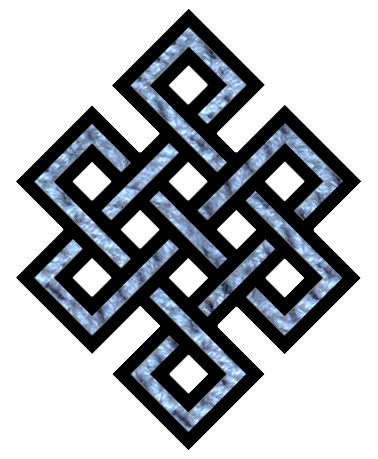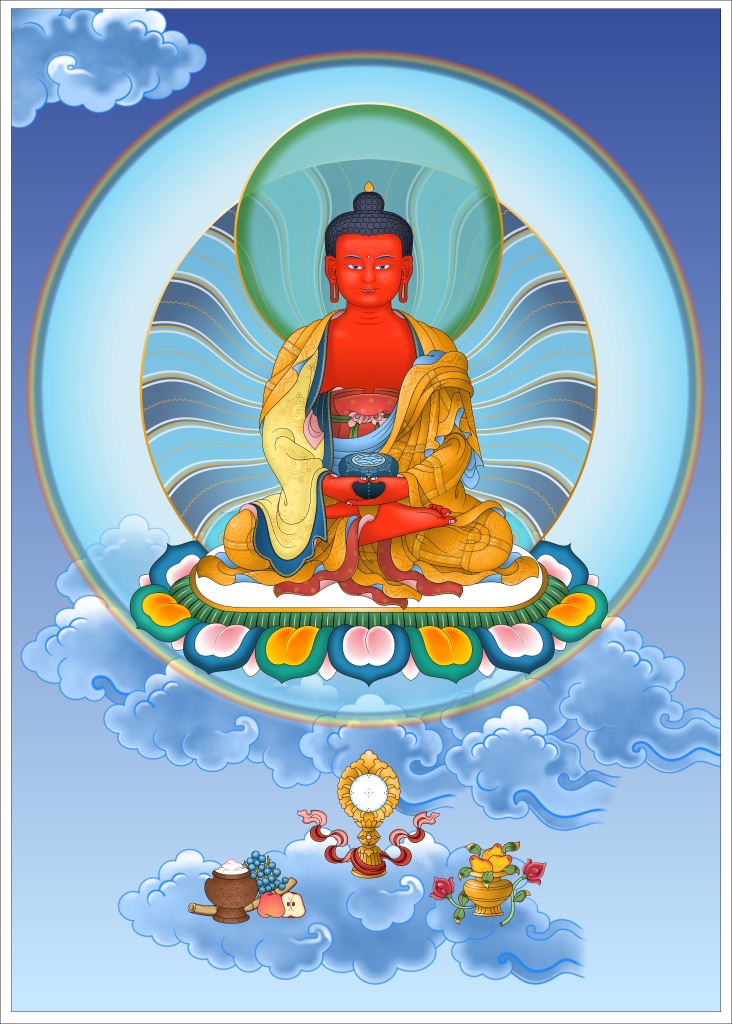Happy Saturday friends. I’d like to share a little about the topic of Karma today. It’s a very important topic because by learning about Karma, we can wake up and cut through the confusion that causes suffering. When we learn about Karma, we have a better model for how reality operates, and eventually if we understand it deeply, there is less need to take things too seriously.

General Definition of Karma
So what, exactly is Karma? In Buddhism, Karma is generally described as cause and effect. All effects arise as the results of the causes that triggered them. There are no causeless phenomena, for how would they arise? To provide a few simple examples: Humans are born when a father’s sperm penetrates a mother’s egg, rainfall happens when moisture from the ground becomes clouds and falls as precipitation, happiness arises as the result of generous, loving and unselfish acts, and wars are fought when thoughts of two opposing groups dislike or oppose the other group. So from a general perspective, Karma is cause and effect. In order for a specific effect to arise, there must be a specific previous cause.
Specifics- Thought, Speech, Action
More specifically, it’s taught that every thought, speech, and action becomes a cause for a future effect. This means every moment of our life, we are experiencing the effects of previous causes while simultaneously producing the causes for future effects. For example, as of late I have a bit of a habit of drinking ginger ale with dinner each evening. The ginger ale I drank yesterday planted the seeds for the desire that drove me to drink ginger ale today which, when consumed, simultaneously became the effect of a precious cause and the cause for a previous effect. So, our consumption of sweet flavored food and drink plants the seed that makes us crave them later, and if we consume them again, then again the seed is planted for later craving. So, karma is like the endless knot image shown above.
Happiness Can be Cultivated
In Tibetan Buddhism we have a prayer that we say preliminary to every meditation session, teaching, etc. May all sentient beings have happiness and its causes. May all sentient beings be free from suffering and its causes. May all sentient beings never be separated from joyful bliss. May all sentient beings abide in equanimity, free from desire and aversion. The thing about Karma that’s beautiful is that we are not helpless with respect to our happiness. If we wish to be happy, we can create the causes for happiness. What are those causes? In a nutshell, any thought speech or action motivated by unselfish love, unselfish compassion, and wisdom of reality, will lead to happiness. What leads to suffering then? Suffering arises from any thought, speech, or action we take based upon selfish desire, aversion, and the ignorance that allows them to surface. My selfish desire to drink ginger ale could eventually become so prolific that it leads me into diabetes and takes my life which would be an example of suffering. Conversely, if I have unselfish love and kindness for others, it’s most likely going to propel me into taking action that benefits them, and brings me happiness as a result. So, the bottom line is that if we wish to be happy, we should cultivate love, compassion, and wisdom by acts of generosity, helpfulness, protection of other living beings, and other beneficial and virtuous activities.

Psychology of Karma
I’d like to share some of the experiential knowledge I’ve gained on the topic of Karma from my own study and meditation. Every moment of our lives is conditioned, shaded, and inspired by all of our previous experiences. When we have a disagreement with someone, we can become very angry with them, and in some cases become violent. In fact, every murder occurs because someone has angry thoughts which propel them to kill other living beings.
When anger arises in us, or any other emotion for that matter, what’s arising is actually much different than it seems. For example, let’s say you’re prone to get angry at someone. It could be a significant other, a boss, family member, or a coworker. Let’s say this person really pisses us off and causes us to lose control, and say evil things, and do all sorts of negative behavior we wouldn’t usually engage in. Normally, when these angry emotions arise for us, there is a mental picture in our mind of the person we’re mad at, and it seems as though that person is intrinsically bad or wrong, and that is the clear cause of the anger. In fact, anger blazes inside of us doesn’t it? It has a fiery, explosive, powerful quality whereby it sucks away the oxygen for any other thoughts, and forces all our concentration onto the person we are angry with. It causes us to completely forget other perspectives or vantage points, and we become laser focused on the wrongfulness or badness of the other. So, this is where we can contrast appearance against reality…. This is one of the powerful aspects of Karma cause and effect. It can cut through confusion to teach us reality

Appearance Versus Reality
Back to the example above… We’re infuriated because this person did this thing, and we are blinded by the anger and resentment. Let me ask you a question: have you ever done a 360 degree analysis of emotion to understand where it’s coming from?
Anger arises in our mind, but we don’t even consider the fact it’s arising in our mind. The only thing we can see when we’re really mad is the other person, and since we are blazing, and fiery, we have no context so reality is totally obstructed. What’s actually happening when we’re mad, or stuck in desirous lust, or scared is we’re transported into an alternative reality. In fact, much of the time we’re in an alternative reality that’s made of concepts. Let’s deconstruct the situation of us being mad at someone who did something to anger us:
- The person did something or said something we are mad about
- What was the cause of their behavior? In other words, since we know every effect is a result of a previous cause, what was the cause(s) that led to their action, or led to what they said? Forget about just what they said for just as moment, and focus on the big picture. It’s only when we focus on the big picture that we get clarity and context. So, set the anger aside for a second, and look at the big picture for a second. you can come back to the anger anytime :).
- Is your anger a result of something this person did yesterday, last week, last month, or last year, or maybe it’s a result of all of the things this person has ever done? Can we interact with someone independent of all the things they’ve said to us in the past, or does what they say this moment get distorted by OUR FEELINGS about the sum total of everything they’ve ever said. Aren’t we always thinking and judging what someone says based on the cumulative total of all our experiences with them? In fact, isn’t the notion of “TRUST” about exactly that? Isn’t trust a result of us judging that person as “safe” based upon their thought, speech, and action?
- To what degree is what we experience in our relationship with another person distorted by everything else we’ve experienced in our life, and everything else they’ve experienced in their lives?
- They probably learned that behavior from someone who learned it from someone who learned it from someone … it’s infinite you see 😊… so are you mad at their great grandpa’s great grandpa’s great grandpa for teaching their kid who taught their kid who taught their kid….such a behavior? Their behavior didn’t magically appear without a cause! It’s a result of previous causes… so which domino are you mad at in the endless array of domino causes?
- Their action arose from a thought. Now, mind you, they also acted on the thought, but it was originally only a thought… are you mad at their thought or their action? Can you be mad at a thought which elusively arises like a rainbow 🌈 based on causes and conditions but when we try to look at a thought within us, they vanish. Can we be mad at another’s thought? Is that like being mad at them for having a dream? Is it really any different to be mad at someone for having thought versus being mad at them for seeing a tree, or having a dream? Aren’t all of these things equally objects of the mind? Being mad at a thought is like being mad at space or at a cloud
- If they said something, and you’re really mad about it, would you be equally mad if you looked in the mirror and said it to yourself? Would you be mad if a computer voice spoke an audio message on your phone of the exact thing this person said to you (the thing that you’re mad about)? Would you be mad if a different person said the same thing, perhaps a person you feel differently towards like an innocent child or a great being like Mother Teresa? Would you be mad if a dog said the same thing to you before kissing your face? Is it really “what they said or did” that you’re mad about?
- Was it their tone you dislike? What it their accent you dislike? Okay, maybe you dislike their body? Which part of their body do you dislike, maybe their pinky toe? Maybe one of their head hairs offends you?
- We got mad about what they did
- Before accepting our anger on face value, we should ask ourselves can someone implant an emotion into our brains? Of course the answer is NO! Nobody can implant emotions into our brains. We formulate emotions based upon sensory data such as sights, sounds, smells, tastes, tactile sensations, and thoughts. Nobody can implant emotions in our brain- we are the ones who implant emotions in our brain. SO- first an foremost, we should admit that we are the only ones with the keys to our inner experience. Nobody can actually make us feel anything without our action.
- Where did we learn anger? Were we born with the intrinsic knowledge for anger, or did we learn it from seeing our parents, family, tv, media, peers at school, coworkers, neighbors, teachers, etc? So is the anger even ours? Or once again, did it originate from our great great grandpa (let’s just say 20 grandpas back)? So should we blame the 20th grandpa back for teaching his daughter anger, who then passed it on… etc. etc. ? Where did the anger actually come from? Which domino should we hold accountable in the long line of initiative grandfathers and grandmothers who taught our family lineage who to be mad?
- Which domino is to blame in the never ending cascade of causes and effects?
- What is the actual reason we are mad.. analyze that reason. Are we mad because they have a different political or religious view? Well, where did the cause for our view on the topic arise? Were we innately born with that view or did it come from 20 grandpas back? If we feel we belong to a particular political party such as democrat or republicans, where does the actual view originate? We might think “I’m a democrat, or I’m a Catholic or I’m a Buddhist”, but where did it originate. Were we born, and then immediately the moment after we left our mother, we began explaining how we are a good democrat who believes in reducing pollution, and protecting the weak? Of course not! However we self identify with anything, it’s never what it seems. It always arises as a mere result from a previous cause. It’s one domino of many. It’s one chain link in an infinite chain which started infinite years ago

Cutting through the Illusion
Now that we’ve analyzed the situation, it should become clear to us that although we were mad at someone because they did or said something, that was actually an illusion. What actually happened was their entire karmic history of memories, experiences bumped into our entire karmic history. It was an illusion because although we became mad at just that person & what they said, in reality there’s actually one billion or one trillion causes that had to occur in order for that person to say what they did, and there’s another one trillion causes that had to happen in order for us to respond and feel the way we did. So, the solidity of the situation is dissolved based upon our understanding of Karma.
By understanding cause and effect, we can reduce how much we cling to any one particular situation because that situation has no self essence. That person we think we’re mad at is a product of a trillion causes and conditions which led to them existing the way they do at this particular moment. They appear within our mind as a solid self; however, they’re anything but a solid self because in order to arrive at this particular moment, they experienced a trillion trillion previous momentary experiences all building upon the former moment. What this person is saying and doing is actually the result of an inestimable amount of previous causes and conditions. There’s literally no way for us to understand how many previous things had to happen in order for this person to think, say, and do what they’re thinking saying and doing. When we look at this other person, or this other situation, under the lens of karma, we begin to see that things are much less concrete than they originally seemed. They begin to appear much more wave-like because we can see that each thing that’s surfacing is a result of a previous thing which is a result of a previous thing. Things are a bit like an ocean of connected causality rather than the concrete entities they appear to be
May all beings benefit immensely from this rant. May it bring all living beings straight to Buddhahood in one single lifetime. Sending my love to all of you ! Thanks for reading.
